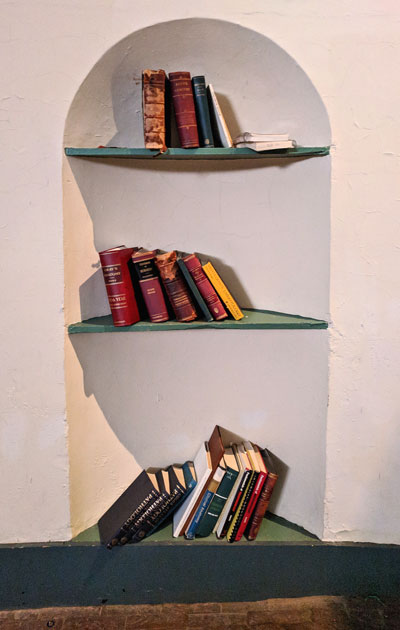 It’s been said of war that history is written by the victors. I would expand that to say that the present defines the past. Our present mentality is very different than the mentality of the past. Just think how differently we think now than we did in the 80’s, the 60’s, the 50’s, and so on. Just try to imagine how differently people thought 100 years ago, 1,000 years ago, or 30,000 years ago! And it is not just human mentality that is so malleable. It is also the earth herself – earthquakes, climate change, consuming rain, fires, and natural disasters. Some say even the constants in the laws of physics change over time. All these changes mold our history.
It’s been said of war that history is written by the victors. I would expand that to say that the present defines the past. Our present mentality is very different than the mentality of the past. Just think how differently we think now than we did in the 80’s, the 60’s, the 50’s, and so on. Just try to imagine how differently people thought 100 years ago, 1,000 years ago, or 30,000 years ago! And it is not just human mentality that is so malleable. It is also the earth herself – earthquakes, climate change, consuming rain, fires, and natural disasters. Some say even the constants in the laws of physics change over time. All these changes mold our history.
To get some insight into the diverse nature of mentalities, we can even look at the same moment in time in different parts of the world. The whole field of international law is so incredibly complicated due to conflicting mentalities. As some have said, “East is East and West is West, and never the twain shall meet.”
Now enters the field of archeology. Though I tip my hat to them for trying, we can hardly venture a guess as to how limited archeologists’ perspectives on ancient cultures might be. A rather classic example might be the Egyptian Sphynx. I understand that archaeologists date the Sphynx at several thousand years, while geologists point out that water erosion dates it at 10,000 years. What happened to the missing 7,000 years? It seems we have no idea.
The salient point here can be summed up in one word: “humility.” We do well to view our history not through the judgmental eyes of current perspective, but rather through the eyes of humility. We can only barely begin to understand our history. The further back in time we go, the less accessible it becomes. Paradoxically, we can benefit a great deal by trying to understand our history: who we are and how we got here.
We do well, though, to not forget the humility inherent in true understanding. We can’t judge our past, we can’t put it in a box, or frame it in a rigid manner. We hold it dearly, but lightly.
We can even generalize this further. Do we really understand the other person sitting across from us and their history? It seems that Socrates had it right: “The only true wisdom is in knowing you know nothing.” The unbounded nature of the field of pure no-thing-ness that dwells within us as us, as our true Self, the unknowable.








There is such a peaceful feeling I have inside me as I read this blog. It is similar to the feeling I have had many times through the years while I read other blogs with an underlining message of humility. It is a much less stressful existence..living a life of exploration of the un-knowable as opposed to a life of “having to know” Thank you for facilitating the journey.
Thank you for this blog. Things are moving so fast and being one of the oldest people at work I am constantly reminded of me being historical. To look at my past through the lens of humility is giving me great comfort. Thank you
I love the picture
What it says to me is sometimes our understanding of history may lean one way, sometimes another.
As you pointed out, remember humility.